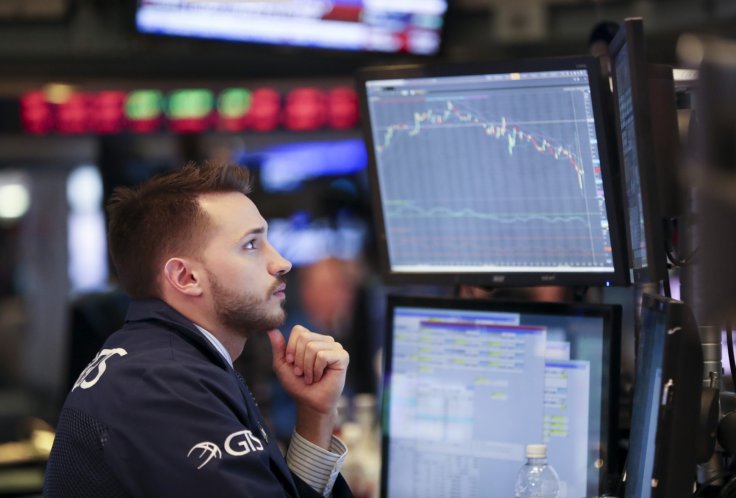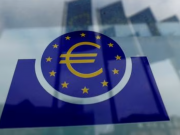US stock futures crashed again on Monday, following a week of trading that saw the S&P 500 plunging more than 13 percent, marking the biggest one-week decline since the financial crisis of 2008. Overall, US markets have crashed more than 32 percent so far due to the coronavirus epidemic, falling from a peak attained on February 19. By all counts the global markets are going through a Black Swan event.
The bull run is declared over in most of the global stock markets. The sentiment is not seen reviving any time in the near future. Analysts don't know for sure when the markets will bottom out. Central bank interventions and government stimulus measures end up providing only the dead cat bounce to the stock markets. All this point to the fact that the markets are in a black swan event, completely taken off guard and devoid of coordinates.
What is a Black Swan event?

It's an extraordinary event that leaves unprecedented damage on financial markets. Rarity, unpredictability and severity are its hallmarks. The current bloodbath on the markets worldwide, from the Wall Street to India and from Europe to China and Southeast Asia, bear the marks of this rare financial markets phenomenon.
Investopedia explains black swan event
"A black swan is an unpredictable event that is beyond what is normally expected of a situation and has potentially severe consequences. Black swan events are characterized by their extreme rarity, their severe impact, and the widespread insistence they were obvious in hindsight."
The origins of black swan
The term black swan event was put through to wide use by former Wall Street trader Nassim Nicholas Taleb. He coined the term in a book written in 2007, before the 2008 financial crisis hit the world. According to Taleb, who was also finance professor and writer, the black swans are impossible to predict and are bound to have catastrophic consequences for the markets.

What are some examples of Black Swan events?
The 1997 Asian Financial Crisis is one perfect example of a black swan event. The crisis ended the spectacular growth story of countries like South Korea, Thailand, Malaysia, Indonesia, Singapore and the Philippines. As much as 70 percent of the market valuations and currency values were lost in the great asset bubble burst that happened in this region.
Another example is the subprime crisis and the crash of the US housing that spawned the 2008 financial meltdown. The Zimbabwe currency crisis in 2008 in which the country witnessed hyperinflation of 79.6 billion percent was another example. The dot-com bubble of 2001 after which Nasdaq took 15 years to recover was yet another example.
Another example is the aftermath of the 2001 al-Qaeada attack the US, after which the Dow posted 14 percent decline and S&P recorded nearly 12 percent weekly fall, was also seen as a black swan event.
When will markets revive after 2020 black swan event?
Nobody can predict when the markets will find the bottom. On Monday, shares took a hammering in the rest of the globe as well, pushing European stocks to near seven-year lows. European shares dived 4.5 percent as they reopened to the news that coronavirus deaths shot up across the world over the weekend. In Asia, the bloodbath continued. MSCI's broadest index of Asia-Pacific shares outside Japan dived 5 percent while Shanghai blue chips fell 2.5 percent. New Zealand bourses fell 10 percent and Australia's S&P/ASX200 fell 5.6 percent. In India trading the benchmark Sensex index recorded the worst ever one-day fall in history, losing 3,935 points or 13 percent.
Is it only the coronavirus fear?
To a very large extent the markets are spooked over the raging coronavirus. However, the fundamentals had started weakening in major economies. The Buffet Indicator, which is a measure of the stock market capitalization-to-GDP ratio, had shown that large world economies may not have been producing enough to sustain the inflated market rallies.
What did Warren Buffett predict?
Buffett had predicted a large correction in the markets ahead of the dot com bust of 2000. The Berkshire Hathaway CEO had said in 1999 that stock valuations were unreasonably high. His logic is that, if the country is not producing enough to substantiate the inflated stock valuations, a correction is bound to happen. The 'Oracle of Omaha; had made similar predictions before the 2008 credit crisis. On both these occasions, the US stock market capitalisation was well ahead of the country's GDP. Before the dotcom bust the US market cap was 146 percent of the of GDP, while it was 137 percent of the GDP before the 2008 Financial Crisis. An analysis by CCN shows that the US stock capitalization was 146 percent as of Mar. 4. However, it must be noted that the capitalisation had come down significantly since the market rout in February.
What's the relevant take in Taleb's Black Swan theory?
Taleb proposed the theory before the 2008 financial crisis but post the mayhem, he theorised that not allowing broken systems to fail was a factor that worsened the crisis. If broken systems (read the banks hit with subprime credit here) are allowed to fail that would rather strengthen them against catastrophe. If a system is 'propped up and insulated from risk' it crumbles in the face of unpredictable events, or the black swan events.
What's the writing on the wall?

Corporates have not not been in the pink of their health, national industrial outputs have been falling and various assets have been in decline. Corporate damage has been worsened by the paralysis in the supply chains and eroding consumer confidence and disappearing spending. On Monday, Goldman Sachs warned that global real GDP will shrink by about 1 percent in 2020. And now, according to Bridgewater, global corporate revenue are expected to take $12 trillion hit due to coronavirus crisis. US companies alone will take a $4 trillion impact from the virus.
"At this point, we estimate US corporate revenue across public and private businesses will decline by roughly $4 trillion. That is a very dangerous decline, and, if not mitigated, it will lead to a long lasting ripple. Since this hit to revenues is happening throughout the world, the total hole globally will be roughly three times that—about $12 trillion," the Bridgewater report said, according to the Business Standard.









